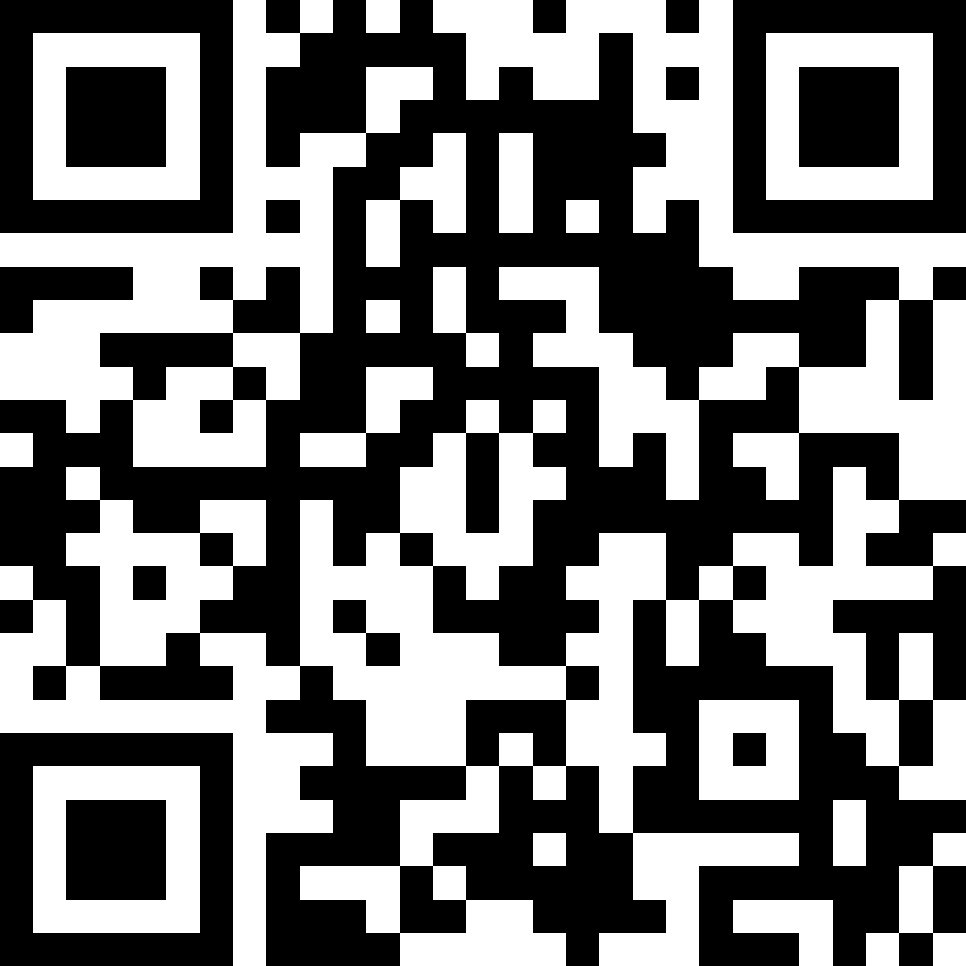
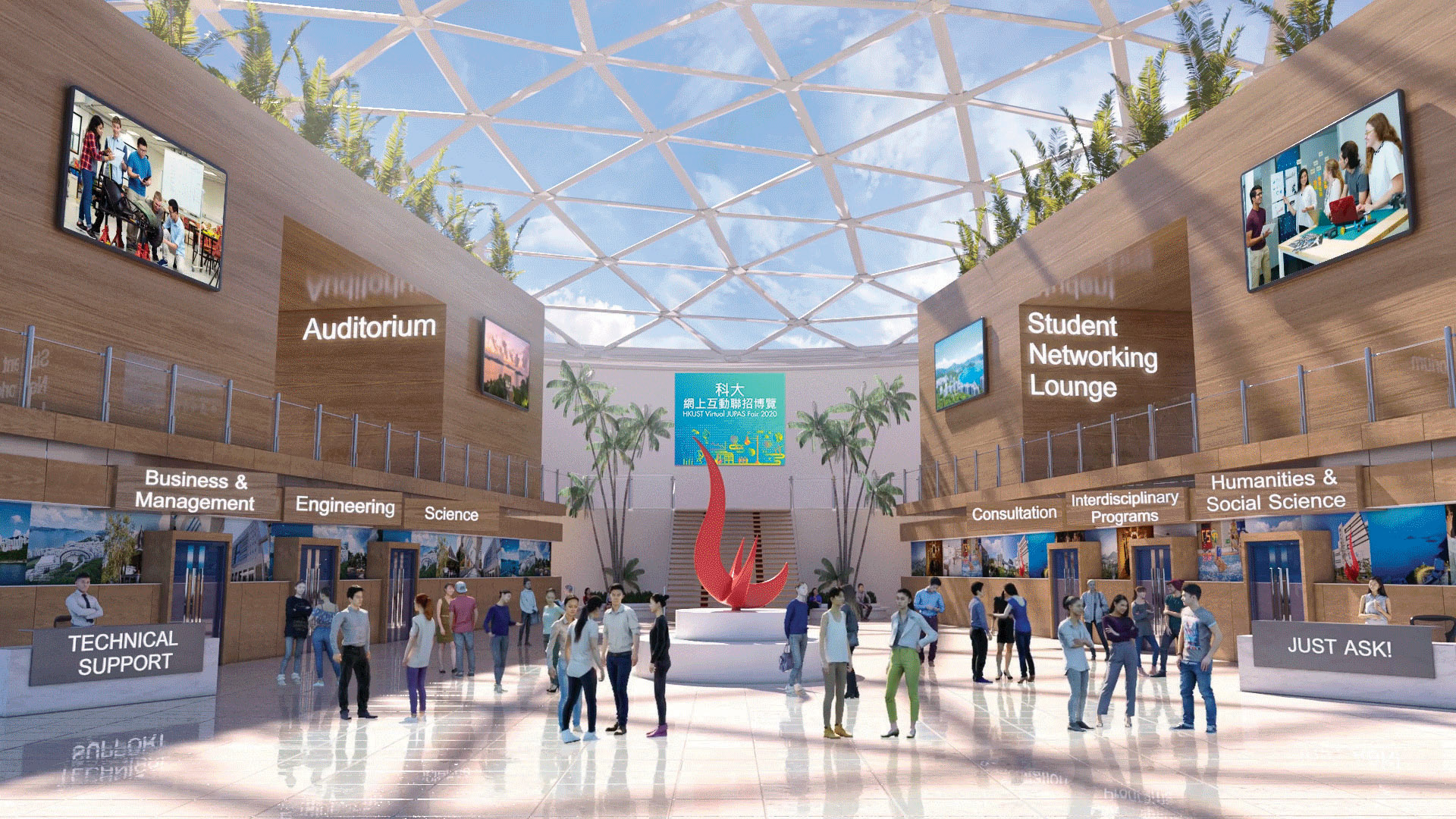
There is barely any aspect of our daily lives that has not been impacted by COVID-19. At HKUST we are addressing the issues that have arisen in a number of ways, many of which involve moving our offline activities and face-to-face initiatives online.
Student Recruitment
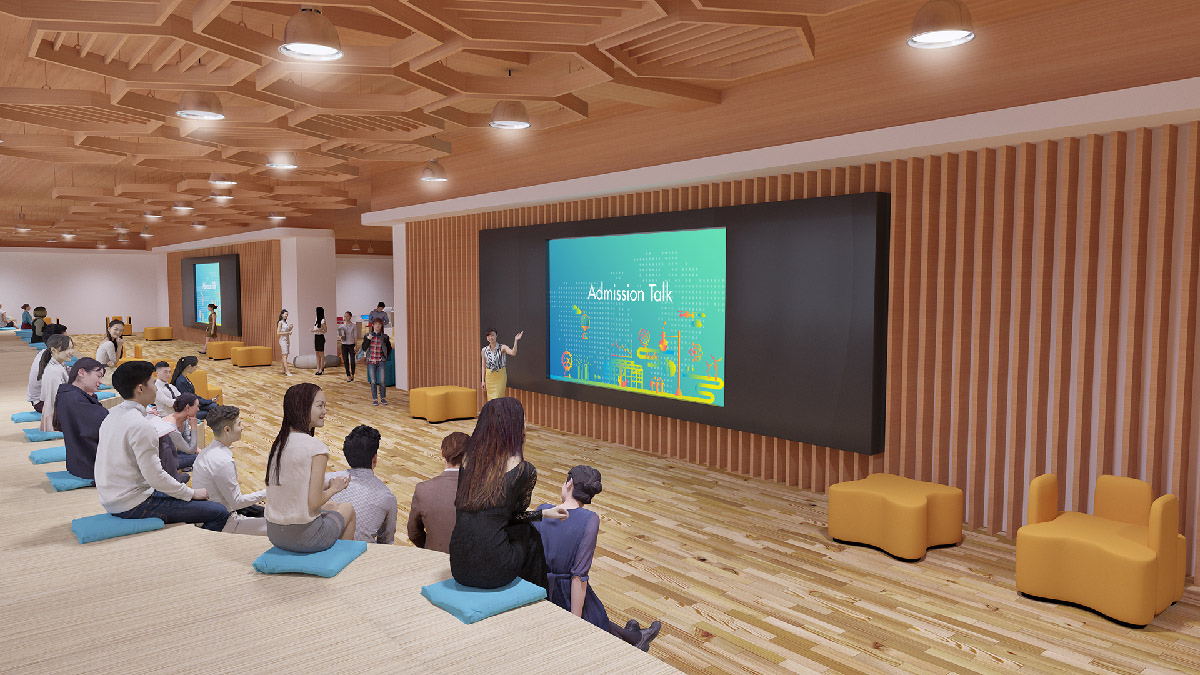
As HKUST prepares for the next intake of students, recruitment has had to adapt. For local students, the HKUST Virtual JUPAS Fair took place on May 30, 2020, delivering an interactive online platform through which HKDSE students could explore the infinite opportunities that await them at HKUST. Potential students were able to attend subject-specific admission talks, student sharing sessions and to connect virtually with professors, student ambassadors and admission officers who were on hand to answer their questions.
For non-local students, the University is more flexible in evaluating applications. Program interviews, if required, are conducted online and virtual information sessions for prospective students are also being held.
Entrepreneurship Initiatives

Entrepreneurship Week@HKUST, a signature program organized by the Entrepreneurship Center, provided an opportunity for experts, seasoned professionals and alumni entrepreneurs to share their experiences and to inspire HKUST students to realize their own entrepreneurial dreams through a combination of virtual seminars, sharing sessions and workshops that took place over four weeks in April and May.
The HKUST-Sino One Million Dollar Entrepreneurship Competition 2020 has taken place from January to June. Budding entrepreneurs were encouraged to participate in this integrative learning experience to create and evaluate a new business. More than 150 teams participated, pitching their ideas online to a panel of judges to be in with the chance of winning the cash prize, which can then be used as seed money to build their own company or further the commercialization of their inventions.
In addition, HKUST launched the Tech-ship Program in April, also via Zoom. The program, a joint effort by the Office of Knowledge Transfer, the Technology Transfer Center and the Entrepreneurship Center, aims to introduce faculty research and technologies to students in order to encourage collaboration and entrepreneurship and to provide support for technopreneurship development.
Career Fair
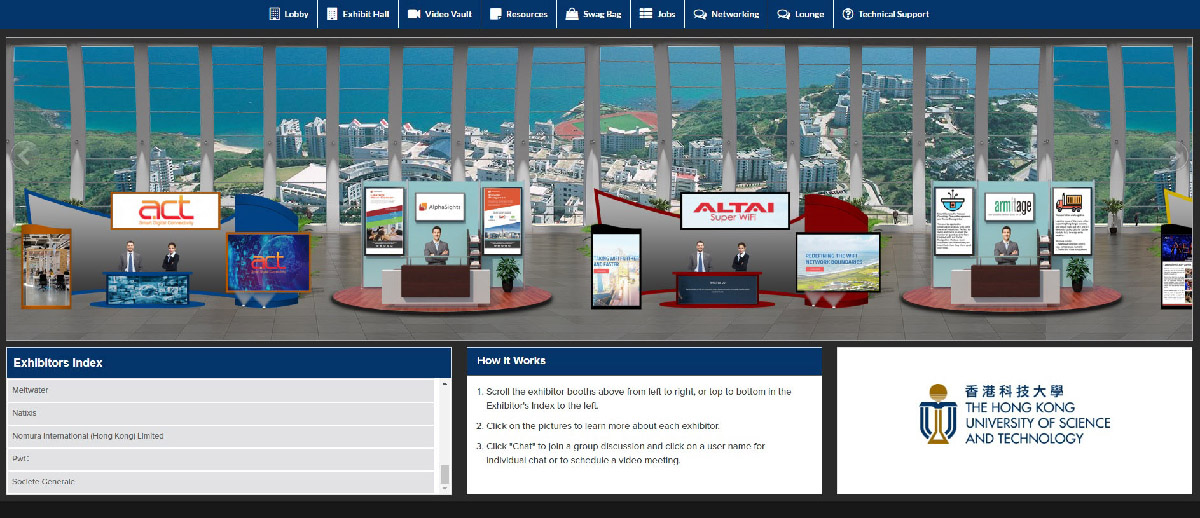
The HKUST Virtual Career Fair, organized by the Career Center, took place on May 12, 2020, providing HKUST students with an online platform through which to connect with prospective employers and to learn more about graduate job and internship opportunities. Representatives from 26 employers spanning a wide range of sectors took part in the event and were on hand to answer any questions about their company and the opportunities on offer. The Career Fair replaced the traditional Career Mosaic job fair, usually held biannually on campus.
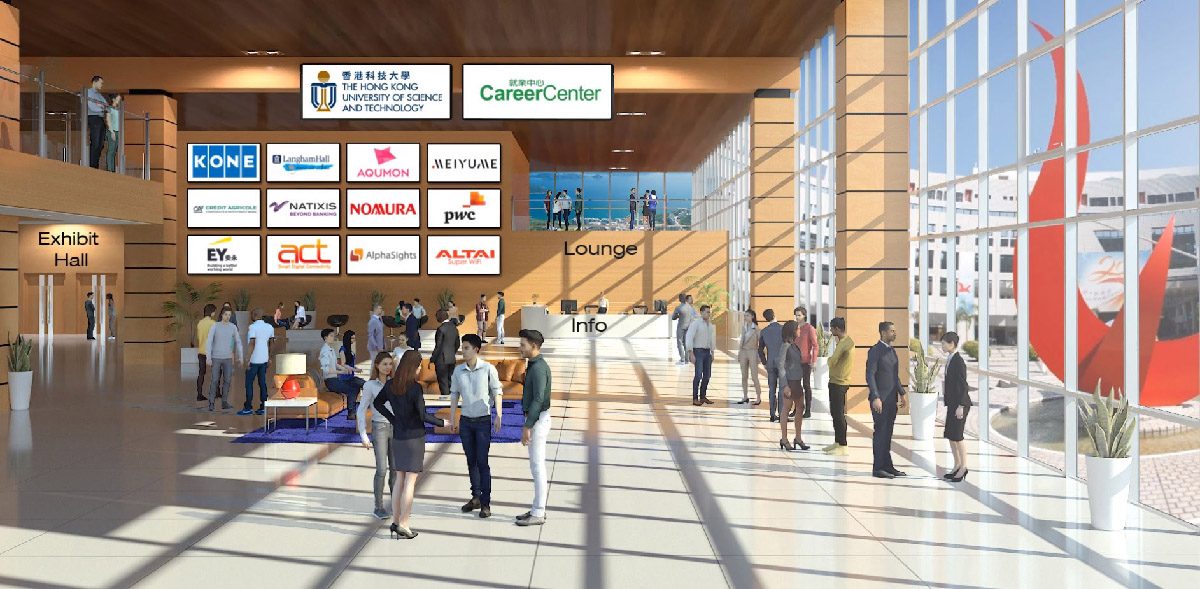
The HKUST Global Days of Changemaking
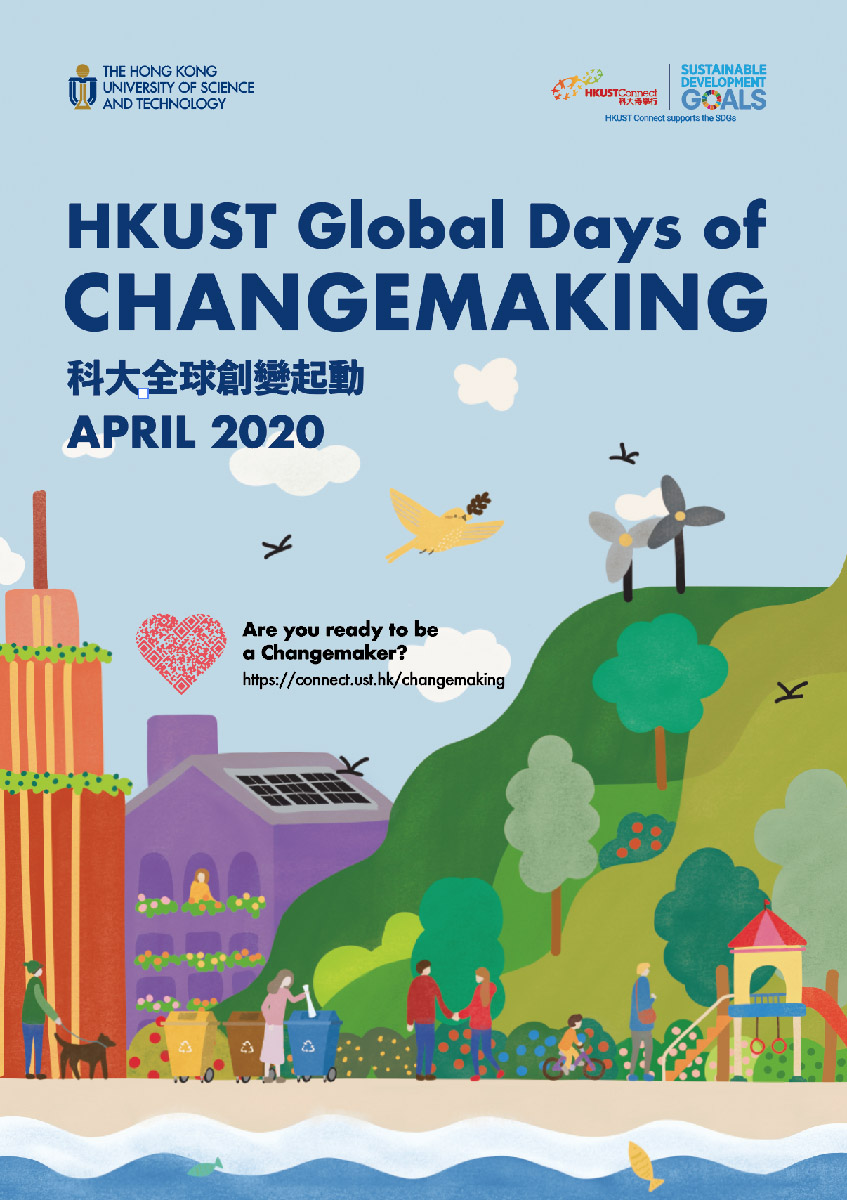
Overseas service-learning trips and direct services involving close social contact may have been postponed or canceled, but there have still been many ways in which students have remotely been driving meaningful change for communities in need. A webinar explored how to contribute to the UN’s 2030 Sustainable Development Goals (SDGs); an online pledge to support SDGs has been established; a Changemaking Challenge was set up — for both individuals and teams — to encourage action on the SDGs, which involves planting trees in Peru; a Mapathon @HKUST event saw volunteers connect digitally to map the most vulnerable places in the developing world in order to improve crisis response; and an Adopt a Tree initiative was set up to grow an HKUST Forest in the Peruvian Amazon Rainforest to help in the fight against climate change.

